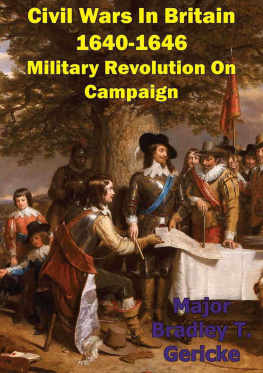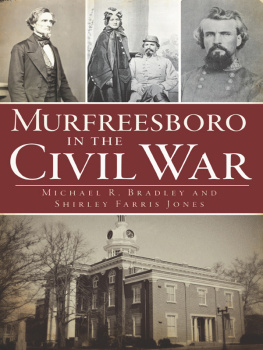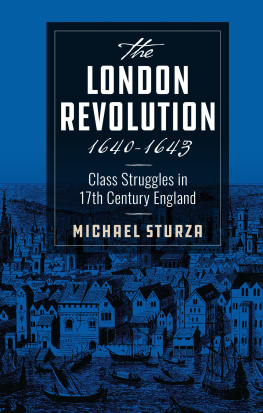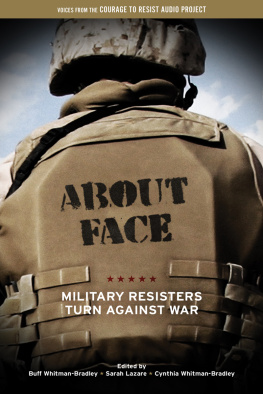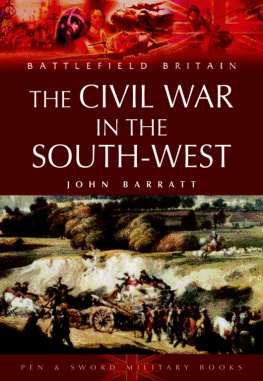This edition is published by PICKLE PARTNERS PUBLISHINGwww.picklepartnerspublishing.com
To join our mailing list for new titles or for issues with our books picklepublishing@gmail.com
Or on Facebook
Text originally published in 2001 under the same title.
Pickle Partners Publishing 2014, all rights reserved. No part of this publication may be reproduced, stored in a retrieval system or transmitted by any means, electrical, mechanical or otherwise without the written permission of the copyright holder.
Publishers Note
Although in most cases we have retained the Authors original spelling and grammar to authentically reproduce the work of the Author and the original intent of such material, some additional notes and clarifications have been added for the modern readers benefit.
We have also made every effort to include all maps and illustrations of the original edition the limitations of formatting do not allow of including larger maps, we will upload as many of these maps as possible.
CIVIL WARS IN BRITAIN, 1640-1646: MILITARY REVOLUTION ON CAMPAIGN
by
MAJ BRADLEY T. GERICKE.
TABLE OF CONTENTS
Contents
ABSTRACT
CIVIL WARS IN BRITAIN, 1640-1646: MILITARY REVOLUTION ON CAMPAIGN by MAJ Bradley T. Gericke.
The military organization of nation states and their employment of armies are central aspects of early modern European history. The seventeenth century was particularly a period of transformation that witnessed drastic change in armies preparation for and execution of military campaigns. To date, historians have tended to overlook military development as it occurred in the British Isles. Yet Britain offers the historian an interesting subject for the examination of first, how emerging ideas of military organization, doctrine, and strategy were transmitted from the European continent; and second, how British soldiers demonstrated their familiarity with contemporary military practice through the conduct of campaigns.
The evidence of military publications within Britain, as well as the experience of British soldiers overseas, indicates that English and Scottish soldiers grappled with the important tenets of the continental military revolution. The campaign strategies employed by British military commanders during the Second Bishops War of 1640 and the English Civil War of 1642-1646 were undoubtedly complex and reflective of the confused political conditions of the period. Nonetheless, British soldiers attempted to fight and to win using a contemporary, thoroughly European understanding of warfare.
ACKNOWLEDGMENTS
I wish to acknowledge the members of my committee, Dr. Bruce Menning, LTC Donald Stephenson, and LTC David Sharp, who shared of their time and wisdom to make this paper a reality.
And I especially note the indispensable support of my wife Tonya. Her patience and sharp editing skills have enable and improved every aspect of the project.
CHAPTER 1 BRITAINS CIVIL WARS
The Historical Context
The wars in Scotland and England between 1640 and 1646 were complex affairs that defy ready categorization. They were also remarkably destructive. The Second Bishops War of 1640 caused relatively few casualties because one side, the Scots, soundly defeated the English in a rare and extraordinary example of a decisive battle. The English Civil War of 1642 -1646 that pitted Parliamentarians (and Scots for a while) against the royalist supporters of King Charles I was far bloodier. At any given moment during the summers of 1643, 1644, and 1645, between 120,000 and 140,000 adult males (roughly one in eight) were under arms in England. The total throughout Britain as a whole was probably in the vicinity of 200,000. In all, perhaps one in four or five Englishmen (about 300,000) bore arms at sometime between 1642 and 1648, and approximately 190,000 died either in combat or from disease. In other words, about 3.7 percent of Englands population of around five million perished, a higher proportion than in either of the twentieth centurys two world wars. In Scotland the dead numbered roughly 60,000 (six percent of the population), and in Ireland as many as 618,000 (forty-one percent). These losses point to war on a tremendous scale. Yet to date, historians have overlooked military development in the British Isles before 1640.
The military organization of states and their employment of armies is a central aspect of early modern European history. The seventeenth century was particularly a period of transformation that witnessed drastic change in governments preparation for and execution of armed aggression, processes which in turn transformed the nature of political institutions and society itself. Britain offers the historian a particularly interesting subject for the examination of first, how emerging ideas of military organization, doctrine, and strategy were transmitted from the European continent; and second, how Scottish and English soldiers demonstrated their familiarity with contemporary military practice through the conduct of campaigns.
Residents of England and Scotland--that is Britain, after James I and VI assumed the united crown in 1603--had not seen substantial battle on their home soil since 1547. But between the years 1640 and 1646, England and Scotland engaged in a war between themselves, and then a civil war that witnessed divisions between Englishmen and Scotsmen played out in significant campaigns and battles. The events that constituted the Bishops Wars and English Civil War demonstrated that Englands and Scotlands military practices and institutions were by 1640 fully adapted to continental models and practices.
War in Britain during these two contests closely approximated what was happening in Europe. The armies fighting in the Thirty Years War and those engaged in England and Scotland each emphasized movement (although hindered by poor logistical systems and inefficient command and control), sought decisive battle but rarely achieved it, and when battle proved elusive, resorted to the capture and control of terrain objectives. The reason that the experience of warfare in Britain and on the continent was so similar was because the tenets of the military revolution underway in Europe were transmitted to Britain through the publication of theoretical knowledge of a science of war and through direct experience of Scottish and English soldiers who served overseas. For the fifty years before 1640, military institutions in Britain were slowly evolving in concert with their European counterparts. And when war broke out in 1640, English and Scottish soldiers prosecuted their campaigns in close accordance with their knowledge and experience of the military revolution.
The Interpretive Context
Modern historiography has overlooked military development in Britain because it has been overwhelmingly focused on continental affairs. The question of how Scotland and England fit into a broader course of European military development is a matter that demands investigation not merely for its historical interest. But importantly for contemporary soldiers and statesmen, the case of Britain typifies the situation that many nation states occupy relative to the United States. Much of the present defense literature speaks in terms of a lack of a peer competitor with America for the foreseeable future owing to the perceived advantages possessed by the United States in a variety of socioeconomic and military categories. Yet if Scots and Englishmen could, rather unnoticed and perhaps even unintentionally sometimes, craft a military establishment reflecting the latest doctrines and organizational principles by means of concentrated study and observation, in a period of severely constrained resources and in a relatively short period, then other states perhaps can achieve the same accomplishment. Britains case is worthy of scholars attention.


